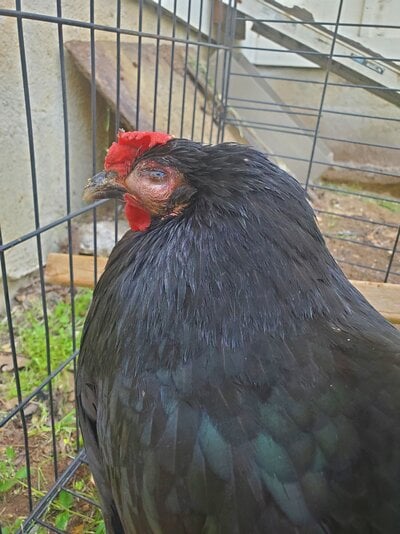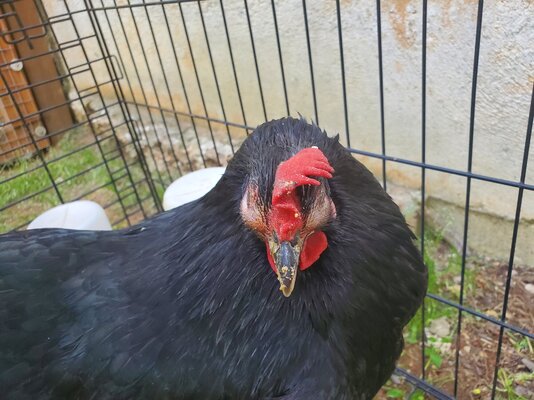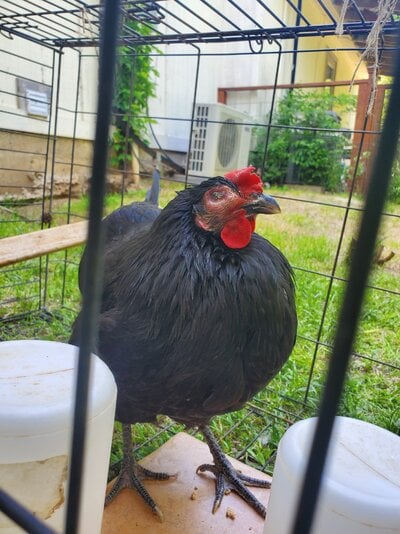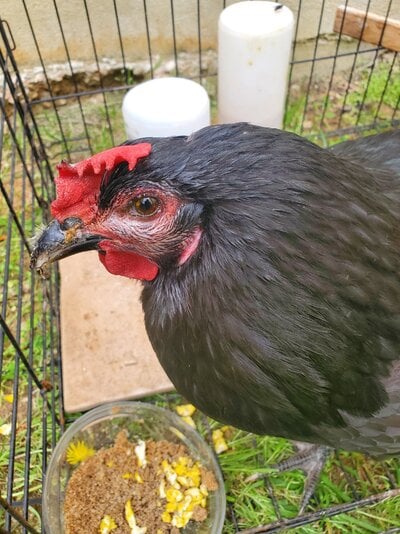becks123
In the Brooder
- Sep 8, 2020
- 14
- 28
- 49
Hen was missing yesterday afternoon but came home to roost last night. Now I realize she was probably missing because she couldn't see her flock...
Found her this AM with eyes closed/swollen. I figured she was stung or something. Washed her head with hydrogen peroxide then with betadine to avoid infection... then I quarantined.
One eye was shut, the other eyelid/membrane was inflamed but has since down..but eye is shut/watery. When I put her head to water she drank, but no food. I gave her some mush food and could see some on her beak when I last checked on her so hopefully she is eating and drinking now.
Now after researching I'm worried it is something worse? Any home remedies or suggestions I can purchase at tractor supply???
Found her this AM with eyes closed/swollen. I figured she was stung or something. Washed her head with hydrogen peroxide then with betadine to avoid infection... then I quarantined.
One eye was shut, the other eyelid/membrane was inflamed but has since down..but eye is shut/watery. When I put her head to water she drank, but no food. I gave her some mush food and could see some on her beak when I last checked on her so hopefully she is eating and drinking now.
Now after researching I'm worried it is something worse? Any home remedies or suggestions I can purchase at tractor supply???








 ath:/APHIS_Content_Library/SA_Our_Focus/SA_Animal_Health/SA_Lab_Information_Services/SA_Diagnostic_Tests
ath:/APHIS_Content_Library/SA_Our_Focus/SA_Animal_Health/SA_Lab_Information_Services/SA_Diagnostic_Tests